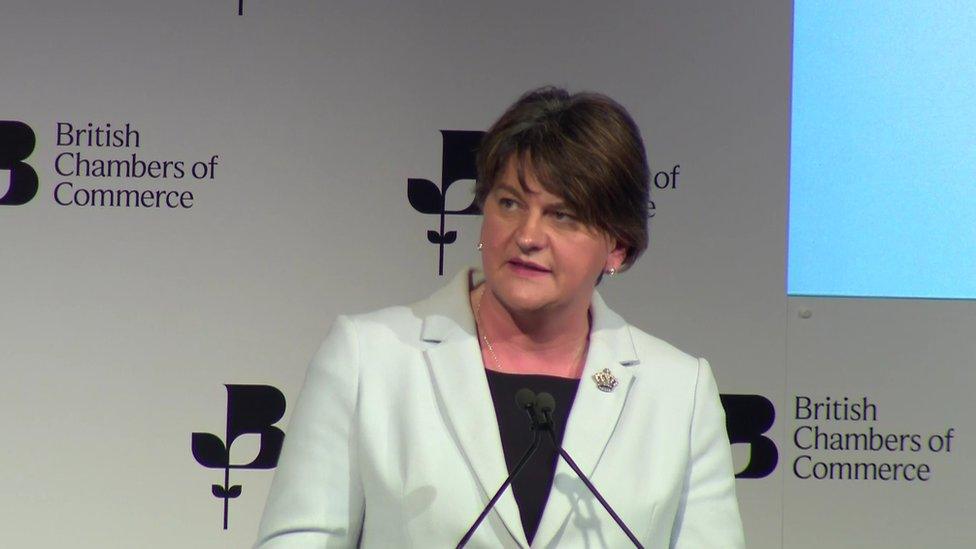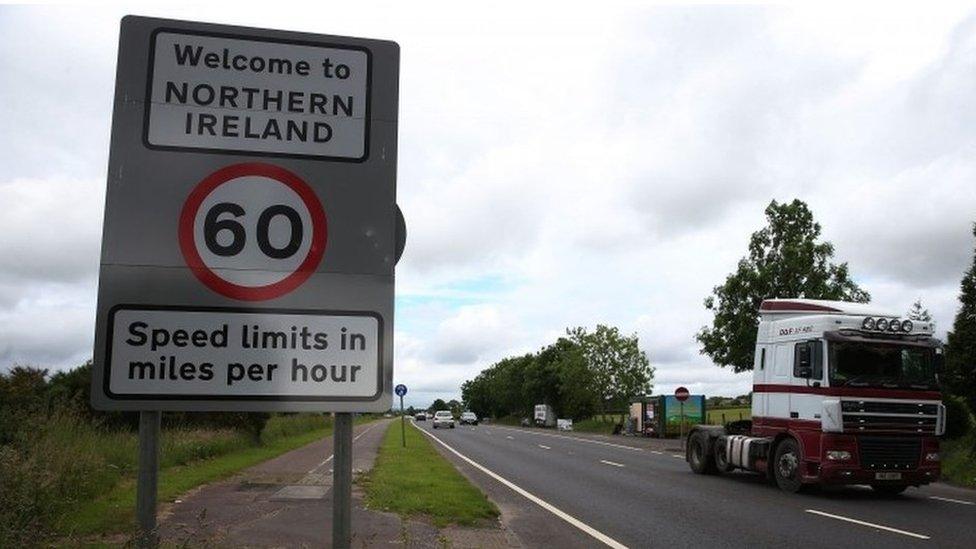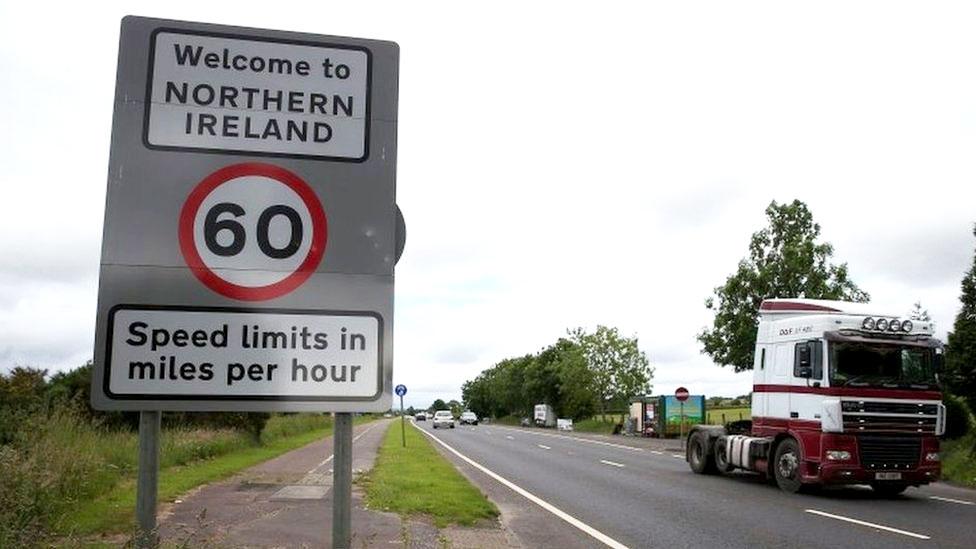DUP leader doubts devolution will return in near future
- Published
- comments

Arlene Foster was speaking in London at the British Chambers of Commerce on Thursday
The leader of the DUP has said she sees little prospect of devolution returning in "the coming weeks or months."
Arlene Foster was speaking in London at the British Chambers of Commerce (BCC) on Thursday.
She said that while she wanted to see power-sharing restored her party's focus was on "having decisions made through Westminster."
The Stormont executive collapsed last January in a bitter row over a flawed green energy scheme.
The two parties have failed to find a resolution despite several rounds of talks.
Mrs Foster said regardless of everything she was optimistic saying she was "a glass half full person."
Speaking at the at QEII Conference Centre in London she also talked about the Brexit negotiations with the EU.

The draft withdrawal treaty set out three possible options for preventing a hard border between Northern Ireland and Ireland
The EU published a legal draft of its Brexit withdrawal agreement, external in February.
It included an option for Northern Ireland to follow EU rules to avoid a "hard border" - if an alternative arrangement is not agreed.
'Optimistic, sensible and pragmatic'
She said the EU recent legal text was "completely unacceptable".
Mrs Foster told the audience: " I don't want to see a hard border. I want to see an optimistic, sensible and pragmatic approach to Brexit."
She also said that no businesses in the Irish Republic wants to see an Irish Sea border.
On talks with the EU the DUP Leader said that it was still her hope that the UK "can reach a comprehensive trade agreement with the EU."
She also told the audience: "We want to maximise the opportunities that will flow from our exit from the European Union.
"More powers in the hands of devolved administrations.
"More flexibility for locally elected Ministers to set policies that work for our regions. "
- Published28 February 2018

- Published28 February 2018
